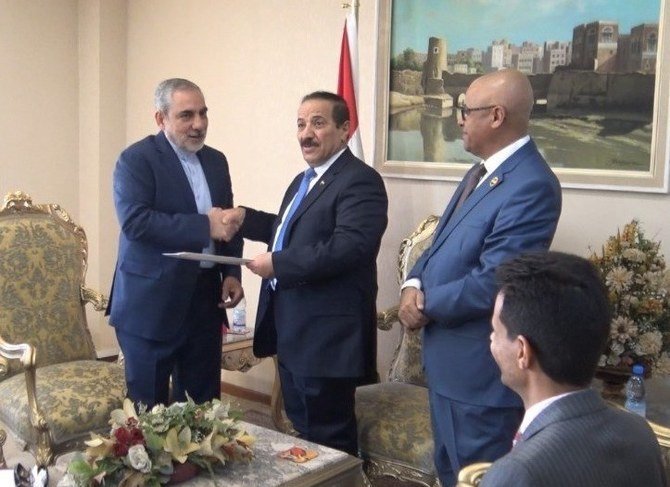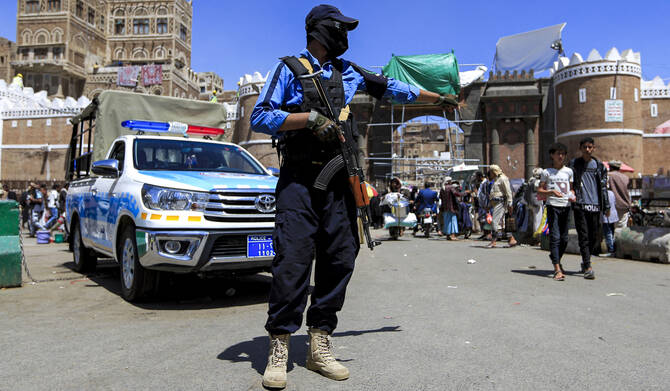- Al-Mustafa International University also targeted for supporting IRGC’s Quds Force
- Iran’s official in Yemen Hasan Irlu is operates for ‘terrorist’ Quds Force
Arab News
LONDON: The US imposed terrorism-related sanctions Tuesday on Iran’s envoy to the Houthi militants in Yemen.
Despite Iran describing him as an “ambassador,” Hasan Irlu operates for the overseas wing of the Islamic Revolutionary Guard Corps (IRGC) known as the Quds Force, the US Treasury Department said.
Iran’s Al-Mustafa International University was also targeted with sanctions for serving as a platform for Quds Force operations and recruitment abroad.
Iran-based Pakistani citizen Yousef Ali Muraj was designated for helping the Quds Force “coordinate, plan and execute operations in the Middle East and United States.”
Iran announced Irlu’s arrival in Yemen’s Houthi controlled capital Sanaa in October. The Iran-backed Houthis seized Sanaa in 2014 forcing the internationally recognised government to flee and sparking the conflict that has devastated the country.
“By dispatching Irlu to Yemen, the IRGC-QF is signaling its intent to increase support to the Houthis and further complicate international efforts to reach a negotiated settlement to the conflict,” US Secretary of State Mike Pompeo said as the sanctions were announced.
“The IRGC-QF is the Iranian regime’s primary tool to sow chaos and destruction across the Middle East,” Pompeo added. The United States will continue to take action against the IRGC-QF to disrupt its facilitation networks and cut off resources that support the terrorist group’s activities.”
In it’s designation, the Treasury’s Office of Foreign Assets Control said Iran’s dispatch or Irlu as an envoy to the Houthis made it the only country to recognise the militia as a government.
“For years, Irlu supported IRGC-QF efforts to provide advanced weapons and training to the Houthis,” the designation said. “He coordinated with other senior IRGC-QF leaders to support the group’s operations throughout the Arabian Peninsula and Yemen.”
Irlu, who appeared with Houthi officials weeks after his arrival in Sanaa, is accused of helping train another Iranian regional proxy – the Lebanese group Hezbollah.
He also coordinated with Iranian Quds Force commander Qassem Soleimani, who was killed by a US strike in Baghdad in January.
Al-Mustafa International University, which claims to have branches in more than 50 countries, was sanctioned for helping the Quds Force, which the US and many other countries consider a terrorist organization.
The university allows its student body to serve as an international recruitment network, the designation said.
“The IRGC-QF uses Al-Mustafa University to develop student exchanges with foreign universities for the purposes of indoctrinating and recruiting foreign sources,” it said. “Al-Mustafa has facilitated unwitting tourists from western countries to come to Iran, from whom IRGC-QF members sought to collect intelligence.”
Recruits from the university have been sent to fight in Syria for Iranian-backed militias, including too that were made up of Afghan and Pakistani fighters.
The designations mean all property of those designated, as well as any entities that are 50 percent or more owned by them, that fall under US jurisdiction are blocked, and US persons are generally prohibited from dealing with them.
In addition, foreign banks that knowingly facilitate significant transactions for them, or people who provide material support to them, risk losing access to the US financial system.
*With Reuters






















